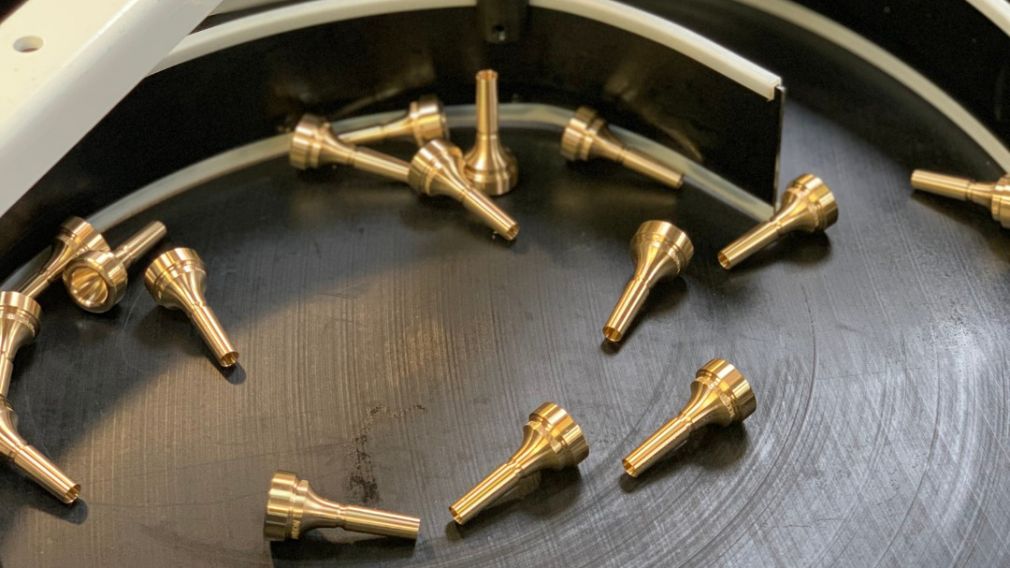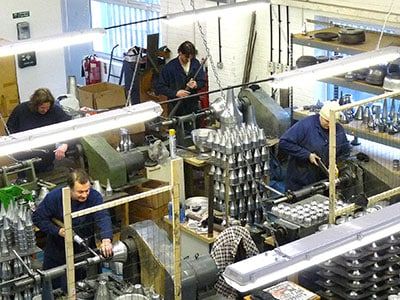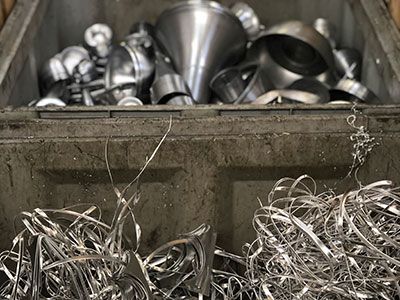Denis Wick Embraces Sustainable Solutions in Manufacturing Process

In 1968, Denis Wick started the company that would bear his name to make products better suited to produce the musical results he was hoping to achieve. He first manufactured mutes and mouthpieces for brass instruments, primarily to aid his colleagues and himself in the London Symphony Orchestra. Having played in London’s Royal Festival Hall, one of the world’s most acoustically challenging stages, Wick and his counterparts required tools to create the correct tonal qualities to combat this harsh acoustic environment.
Wick’s mutes and mouthpieces “have helped create this distinctive timbre and have come to represent an important part of our musical heritage.” During the development of one of its most popular mutes, Wick played multiple prototypes of the trombone for English composer Benjamin Britten. Finally, with the help of Britten’s keen ear, he selected the trombone mute he preferred, and that selection remains in production today.
The company has since grown into one of the world’s leading manufacturers of brass instrument accessories. Stephen Wick is the Executive Chairman following his father's retirement and the company is run by newly-appointed CEO Steven Greenall. The factory, located in Hamworthy, Dorset, houses skilled technicians and craftsmen, who, alongside a global system of distributors and dealers, sell products to musicians worldwide. In 2013, Denis Wick was awarded the Queen’s Award for Enterprise in International Trade, an extremely coveted accolade in the British business community.
Nearly a decade ago, the NAMM Member embarked on a plan to reduce its impact on the world through a multi-faceted sustainability plan. Its efforts include alternative ways to generate energy, dispose of waste, and source wood.

At the company’s factory an array of solar panels are optimized to combat the effects of running a factory on traditional energy sources. The electricity generated powers the manufacturer's CNC machines and lathes and has saved over 28,294 kg of CO2 emissions since its installation, or planting over 1,295 trees. In addition, when the factory is not operational on evenings and weekends, the energy harnessed through the solar panels is diverted back to the national grid, providing sustainable solutions across the country.

In addition to its solar project, Denis Wick is committed to responsible waste handling and recycling most of its waste material. For example, the mute production process accumulates scrap aluminum and swarf, the fine chips or filings from manufacturing mouthpieces. This byproduct is sent to foundries where the byproduct is melted down and recycled.
The need for birch wood in its wooden mute production has led the company to take a proactive approach to mindful sourcing its wood. Although, according to the NAMM Member’s website, birch trees “play a vital part in the biodiversity of northern forests and help promote the growth of many species including birdlife, fungi, herbivores, and insects,” the company sources all its birch from certificated sustainable forests in Finland.

The importance of the efforts made by the NAMM Member is evident in a statement made by Stephen Wick. He said, "As climate change continues to affect our lives as well as the fate of all other species on the planet, we must all do what we can to reduce our carbon footprints and find ways to become more sustainable."
The team at Denis Wick began its programs years ago, starting with the simple task of swapping their incandescent lighting for low voltage options. Wick also commented on the expansion of solar, saying, “The panels proved to be an astute investment and, although they were expensive to install, they paid for themselves within seven and a half years.”
The future for Wick includes the increased limitation of plastics. The team has been reducing the use of plastics in its packaging, with most of it already being recyclable. Examples include the replacement of bubble wrap with more sustainable cardboard honeycomb alternatives. In addition, Wick reported that the company has already replaced all its vinyl tape, used for sealing boxes, with reliable paper tape that is both recyclable and biodegradable.
Wick used his experience leading a company that puts eco-friendly initiatives at the forefront of operations to advise other NAMM Members. “Sustainability is at the heart of everything we do. We try to be environmentally aware, and we like to think that we consider more than just profits. Companies would be wise to follow our lead. Apart from the small matter of saving the planet, some tenders for government and educational contracts are now beginning to be dependent on environmental considerations and will not be awarded to companies that do not have a well-considered sustainability policy.”
The manufacturer’s efforts to remain mindful of the state of our planet and the steps they are taking to preserve our world for future generations have not impacted its ability to produce high-quality products. The skilled artisans who craft Denis Wick’s line of accessories do so with the intention that they will be used for decades by talented musicians. For more information from Denis Wick, please visit https://www.deniswick.com/.